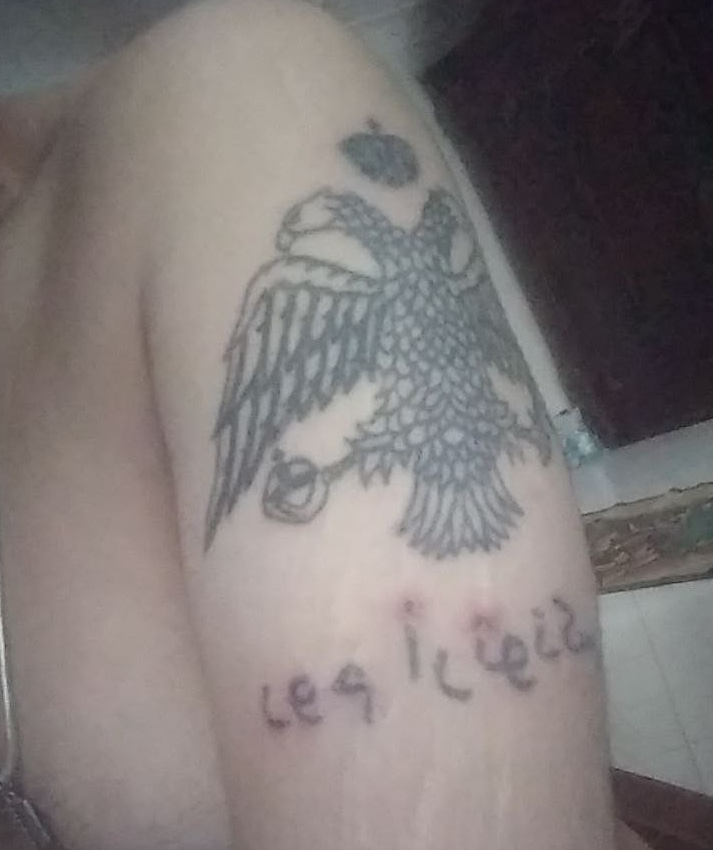By Coptic Solidrity –
Egypt’s constitution boldly proclaims that “freedom of belief is absolute” (Article 64). An impressive declaration—until one reads the unwritten caveat: “as long as you are and remain a Muslim.”
This contradiction has once again come into sharp focus in the tragic case of Said Abdel-Razek.
Said’s Story
Said Mansour Rizk Abdel-Razek, a 30-year-old Egyptian citizen born to Muslim parents, courageously embraced Christianity in 2016. This came after years of studing comparative religions, a subject that deeply interested him since his younghood.
Despite repeated attempts to join churches in Egypt—both Orthodox and Evangelical—he was not formally accepted into their congregations. (He later joined the Russian Orthodox Church.)
From that point, Said endured relentless harassment: from his family, his community, and above all, Egypt’s National Security in Alexandria. The persecution escalated into arrest and torture. He was forced to divorce his wife and abandon his young son. In Egypt, a woman “believer” cannot remain with an apostate husband, and children born in Muslim wedlock are classified as Muslims for life.
Escape to Russia—and Return
In 2018, Said attempted to leave Egypt and seek asylum in Russia. Egyptian authorities blocked his first attempt, summoning him to National Security, where he later recalled : “I was insulted and humiliated.”
Eventually he succeeded in reaching Russia, applied for asylum, and has formally converted into the Russian Orthodox church. For a brief period, he lived free of the crushing social and psychological pressures of Egypt.
But in Russia, his outspoken criticisms of his former faith (including some public acts triggered, he later explained, by some Muslims’ provocations during social media interactions) provoked backlash. He was imprisoned for 11 months and later deported to Egypt in 2024—even though he held a UNHCR attestation (March 2025) confirming he qualified as a refugee.
Upon his return, he was detained, then released with a chilling warning from a National Security officer: “If you want to be a Christian, so be it… but you must remain silent. No public statements. No contacts. And of course, no evangelizing.”
He was also forced to undergo painful procedures to remove a Christian tattoo he had made in Russia. He later confided to close friends that during his detention he had been suspended with his hands tied to a wall in a “crucified position” for several hours each day over the course of a week.

Life Under Surveillance
For the next year, Said lived under constant surveillance and unrelenting psychological pressure. He moved to Cairo’s Matariya district, where he continued to post on social media. However critical, his comments on Islam were mild compared to the torrent of hate speech routinely broadcast against non-Muslims in mosques and online.
Still, he felt suffocated and unsafe. To friends, he confided that he felt like a target for assassination.
In July 2025, he reached out to a lawyer through a mutual friend, hoping to exercise his constitutional right to file a lawsuit to change his official religion and update his ID documents. In Egypt, one’s religion is obligatorily listed on all identity documents—even on something as trivial as an application to join a sports club.
Arrest and Charges
On 15 July 2025, just days after starting these legal steps, plain-clothed National Security agents arrested Said at his apartment in Matariya. Hints on social media about his intentions may nave alerted the authorities to take preimptive steps.
On 22 July 2025, he appeared before the State Security Prosecution, where he was verbally told he faced serious charges:
- Joining a terrorist organization
- Disturbing public order
- Spreading false information
- Receiving illegal funding
These charges, however, were never filed formally. His lawyer—as far as we know—was denied access to the case files and was not permitted to meet with him.
Said’s detention has just been renewed for another period, pending “interrogations.”
A Constitutional Farce
This tragic case reveals Egypt’s stark hypocrisy. While the constitution enshrines absolute freedom of belief, in practice this applies only to those who remain Muslim.
Converts to Islam are embraced, their IDs changed within days, and they usually enjoy community support.
Converts to Christianity, by contrast, are treated as criminals—isolated, silenced, and stripped of their most basic rights.
Said’s arrest has nothing to do with “national security” or terrorism. It is about a man seeking to affirm his identity and claim the same rights guaranteed to every other Egyptian citizen.
A Call to Action
Said’s dream was heartbreakingly modest: to walk freely in the street and sit peacefully with a friend. A basic human right—yet denied.
We call on international organizations, human rights defenders, and all who value human dignity to:
- Demand Egypt immediately release Said Abdel-Razek;
- Insist Egyptian authorities guarantee full religious freedom, including the right to change one’s faith without fear.
Said’s story is not his alone. It is the story of thousands of silenced voices in Egypt, forced to carry the cross of religious freedom under constant threat.
Said deserves our support—just as every person does who simply seeks to live their truth in peace.
___________
Note: Several details in this article were obtained by Coptic Solidarity from sources close to Said.





